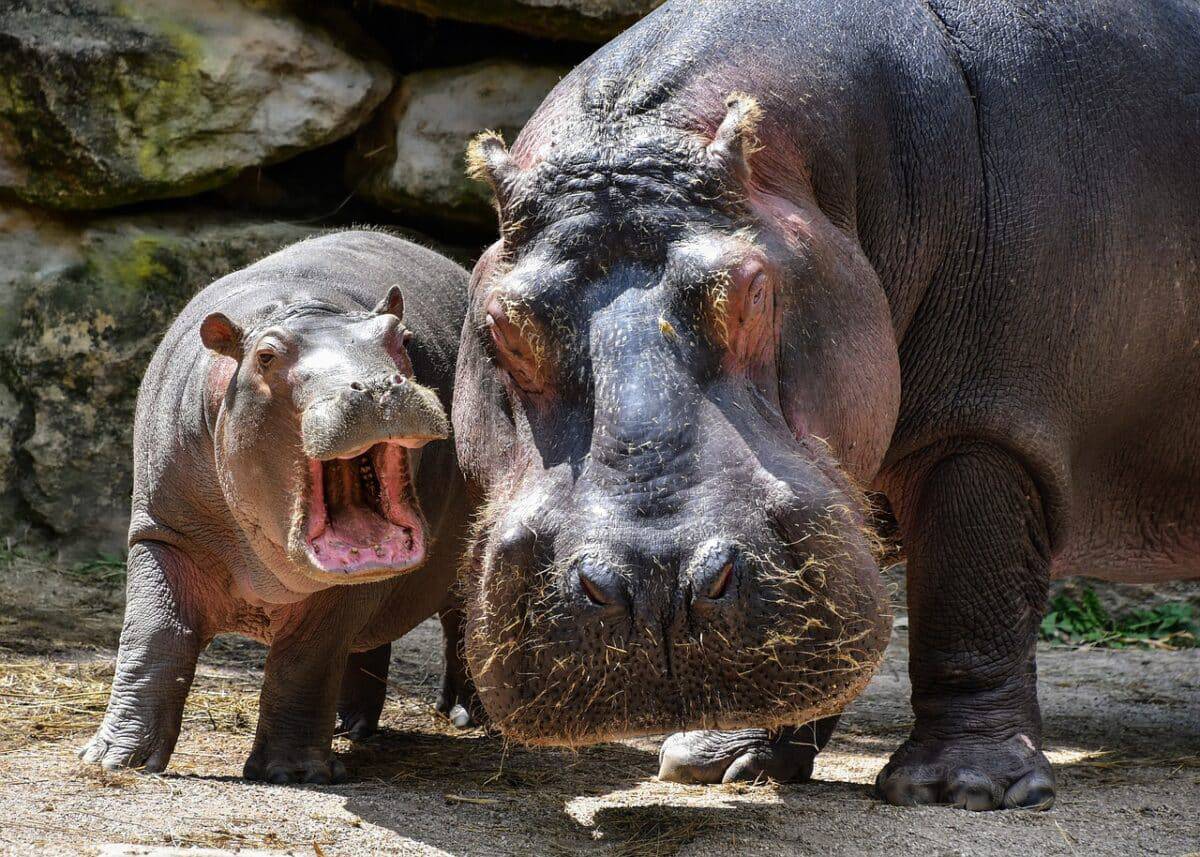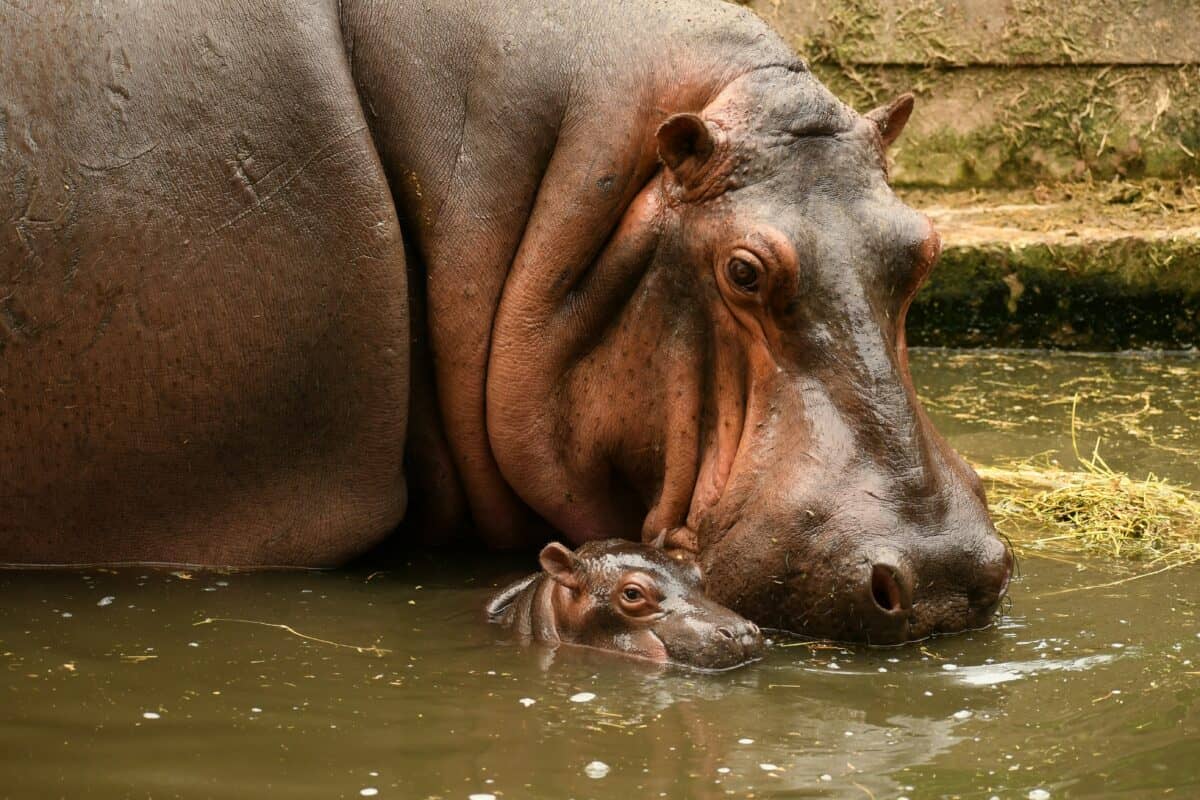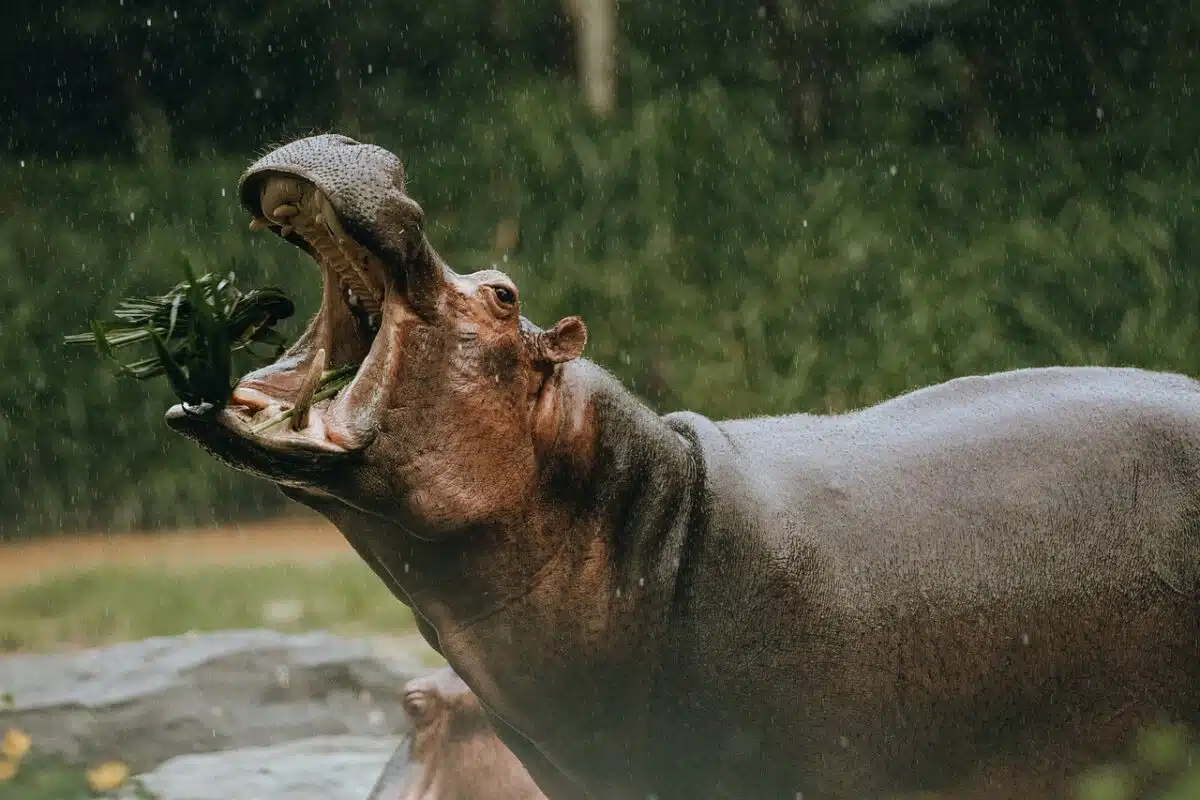Notoriously aggressive, hippopotami are some of the deadliest land animals to humans, causing around 500 casualties annually. Most hippo-related attacks occur when people encroach upon their territory, whether by boat, canoe, bike, or foot. However, hippos don’t attack to eat because they are, in fact, herbivores.
Therefore, it is absolutely staggering to find out that hippos engage in the behaviour of preying on baby hippos from their herd.
An Infamous Occurrence
In 2018, Adrian Hirschi, a wildlife photographer snapped an image that landed him the title Wildlife Photographer of the Year 2019. The image in question was of a hippo bull clutching an infant hippo in his muzzle, while the infant helplessly cried out in anguish.
Adrian explained in a background story of the image that he was visiting Lake Kariba in Zimbabwe and watching a herd of hippos while his party took a tea break from their safari. The guide informed them that the infant hippo with the group was at an incredibly vulnerable age.
Why? Well the answer was clear mere seconds later when two hippo bulls separated the mother from her baby, then one grabbed the baby in its mouth, tried to drown it, and when that didn’t work, bit down on the child in the moment Adrian captured, and flung the baby around. The mother could do nothing but gaze upon the situation helplessly.
The next day, Adrian’s party found the baby’s carcass by the shoreline. A few days later, the remains were gone.
See the image here.
What Researchers Say

Preying on babies in a herd is not entirely uncommon in the animal kingdom. There are a few eyewitness reports every year of hippos, in particular, committing this heinous act.
Prof. Rebecca Lewison concluded in a study on hippos preying on baby hippos that this act may be a strategy by which bulls increase reproductive success. She found that bulls are more likely to kill young hippos during times of drought or resource scarcity. In addition, this ensures that social status and hierarchical ascension is maintained within a certain bull’s lineage, and not challenged by another bull in the herd.
Conclusion

It’s hard to accept that this as a natural behavior practiced by animals, but intervening would mean disturbing the social dynamics that have shaped their populations for as long as they have been around. Perhaps simply observing these behaviors may give us insight into different animals’ evolutionary strategies that have brought them here today.
You may also like:
Join our Forum for free today!

- Glow-in-the-Dark Sharks & Other Fascinating Bioluminescent Fish - July 10, 2024
- Why Flamingos Are Totally Hardcore - July 3, 2024
- Nuclear Tech to Combat Poaching: Radioactive Rhino Horns - July 2, 2024

